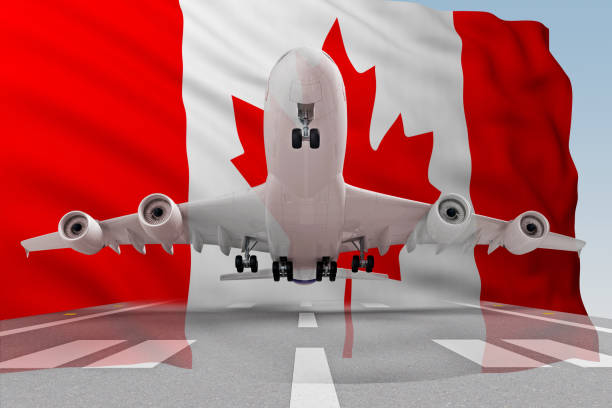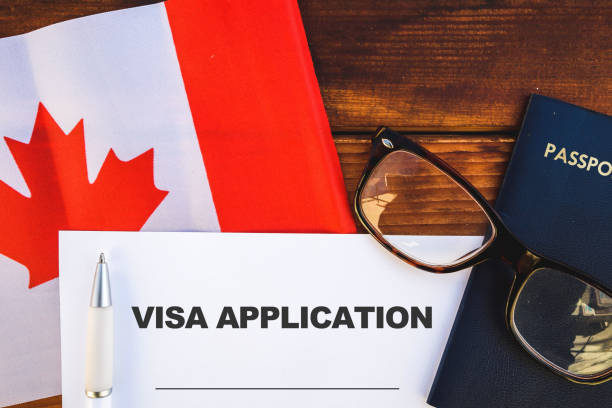How to Obtain a Canadian Passport for Immigration to Canada?
How can I obtain a Canadian passport? A Guide for Those Seeking Immigration Assistance:
How to obtain a Canadian passport for immigration to Canada is one of the major critical questions on the minds of every potential immigrant. The main immigration document used by Canadians to enter the country is the Canadian passport. However, there are other options for obtaining a Canadian passport. If you’re planning a trip to Canada, you should get your own Canadian passport first! Everything you need to know about getting a Canadian passport is right here.
How can I obtain a Canadian passport? The best approach to obtaining a Canadian passport is through the relevant government agency (e.g., Citizenship and Immigration, Immigration and Refugee Board). A Canadian passport can be obtained in a variety of ways. You can apply directly to the government agency, or you can go through a process tailored to their specific scenario.
Obtaining a Canadian passport for immigration to Canada is no mean feat. Let’s get this new initiative started! Before applying for citizenship or immigration benefits in Canada, be sure you have all of the essential paperwork. Getting all of those papers gathered is no easy task!
What is a Canadian passport?
A Canadian passport is a passport granted to Canadian citizens. It is a document that proves you live in Canada. It allows the bearer to freely enter or re-enter Canada; travel to and from other countries in compliance with visa rules; aid in the process of obtaining help from Canadian consular officials overseas, if necessary; and ask for protection for the bearer while abroad.
All Canadian passports are issued and distributed by Immigration, Refugees, and Citizenship Canada’s Passport Program. Prior to July 1, 2013, Canadian passports were issued by Passport Canada, a wholly owned subsidiary of Foreign Affairs and International Trade Canada. Passports are usually valid for five or ten years for those over the age of 16, and for five years for minors under the age of 16. By 2022, 70% of Canadians would have a passport, with over 24.6 million in circulation. Despite the fact that they are owned by individual citizens, all Canadian passports are legally the property of the Crown and must be returned to the Passport Program upon request.
Canada is a member of the Five Nations Passport Group, an international forum for cooperation among passport-issuing authorities in Canada, Australia, New Zealand, the United Kingdom, and the United States to “share best practices and discuss innovations related to the development of passport policies, products, and practices.
On July 1, 2013, Canada started issuing biometric passports, also referred to as electronic passports or e-passports, to Canadian citizens.
According to the Henley Passport Index, the Canadian passport ranks eighth in the world in terms of freedom of movement and travel as of 2023.
In the summer of 2023, a new passport with enhanced security measures and artwork was introduced.
How can I obtain a Canadian passport?
The only prerequisite for applying for a Canadian passport is that the applicant be a Canadian citizen. Children under the age of 16 must be represented by one of their parents or legal guardians while applying. After receiving a Canadian passport, you must fulfill a number of requirements in order to renew the document. The passport must be valid or have expired within the last year. You must have the same name, birth date, place of birth, and gender as you have on your current Canadian passport. Your current passport must be valid for at least 5 or 10 years.
Your current passport must not be damaged and must not have been reported lost or stolen. You must also have been at least 16 years old when your current passport was granted. If you do not meet all of these standards, you must apply for a new Canadian passport because you will not be able to renew your present one. Can I obtain a Canadian passport as a foreigner? Yes, of course.
After meeting specific residency criteria, permanent residents can petition for citizenship. As a naturalized Canadian citizen, they can apply for a Canadian passport and participate freely in Canadian politics. In truth, there are no distinctions between naturalized citizens and Canadian citizens born in Canada.
Besides the capacity to vote in Canadian elections, the most significant distinction between a permanent resident and a citizen is that permanent residency must be maintained. You aren’t required to do anything to keep your Canadian citizenship once you have obtained it. Your Canadian citizenship may only be revoked if you want to do so.
You can obtain a Canadian passport from a government agency such as Citizenship and Immigration or the Immigration and Refugee Board. Applications for Canadian passports should be made directly to the government agency, or a process tailored to your circumstances will be employed. Get your Canadian passport within a few days of applying.
Get help with your Canadian immigration application.
You can get support with your application by hiring a representative or an agent. A lawyer or paralegal who is a member in good standing of a Canadian provincial or territorial law society, or a notary who is a member in good standing of the Chambre des notaires du Québec, must act as the representative or agent.
If you’re seeking assistance in obtaining a Canadian passport in addition to your driver’s license, you’re in luck! The Canadian Passport website is an excellent reference for all things passport-related in Canada. You may get instructions and suggestions, as well as information on everything Canadian, from automobile manufacturers to car models. The website contains all of the necessary information for anyone seeking a Canadian passport and how to obtain a Canadian passport for immigration to Canada, as well as useful recommendations and advice.
How to become eligible for a Green Card in Canada
Did you know that Canada has its own version of the Green Card issued by the United States? Individuals with a Canadian Permanent Resident Card can work and travel freely throughout Canada as permanent residents for as long as they like.
A Green Card is a popular name for the United States Permanent Resident Card, which allows a person to enter, reside, and work legally in the United States as a permanent resident. The Canadian Permanent Resident Card is Canada’s equivalent of the Green Card. The Canadian Permanent Resident Card, like its US counterpart, allows holders to enter and live in Canada.
Many people will remember the process of applying for a Canadian passport and obtaining a Canadian passport for immigration to Canada for the rest of their lives. There are several ways to obtain a Canadian passport, and each time you do, you discover something new about yourself. You may have also discovered that you prefer or require a particular kind of clothing or fashion sense in your living setting. Here are some pointers to assist you in obtaining a green card in Canada: – When applying for citizenship or immigration benefits in Canada, be sure you have your Canadian passport.
To be eligible for a PR card, you must first apply for permanent residency in Canada. Canada accepts more immigrants per capita than any other North American country. If you want to learn more about how to immigrate to Canada as well as how to obtain a Canadian passport for immigration to Canada as a permanent resident, start by completing our online eligibility assessment form.
Read also: The best-paying jobs in Canada
How to Get Married in Canada and Have Children of My Own.
You can marry in Canada as a guest or on a temporary residence visa. You don’t have to be a Canadian citizen or permanent resident to apply.
You must still meet the standards of the province in which you wish to marry. Each province maintains its own set of rules.
If you decide to marry in Ontario, you must both meet the province’s eligibility standards. They are as follows:
- You must both be at least 16 years old. You can marry if you are under the age of 18, but you must obtain formal permission from your parents or legal guardians.
- Close blood or adoption relatives (grandparent-grandchild, parent-child, brothers-sisters) are not permitted.
- To be married, both of you must be physically present. You cannot marry over the phone, by webcam, or by proxy.
- You must not be married at this point. When applying for a marriage license, you must produce proof of your divorce.
To marry in Canada, you must still obtain a marriage license and certificate. You can obtain a marriage license wherever you want to marry by going to a municipal office or city hall.
Additionally, if you intend to visit Canada on the same day as your wedding, you need to obtain your own Canadian passport first and all necessary information on how to obtain a Canadian passport for immigration to Canada.
Apply Now: Ways to Immigrate to Canada Without a Job Offer
How long does it take to get a Canadian passport?
Passport service requirements: In 20 business days, including shipping: Apply in person, by appointment, or by mail at any Service Canada Centre. Appointments are in high demand in several locations. Nevertheless, there is no single correct response to this question. According to most sources, it takes two to three months from the time you order your Canadian passport until you receive it. Some people receive their Canadian passport within a day or two of placing their order, while others may have to wait longer. Finally, it is a crucial document that must be obtained through official channels, and the wait time can be reduced if you have a digital option, such as the Canada Card.
Which government body is in charge of issuing Canadian passports?
All Canadian passports are granted by Immigration, Refugees, and Citizenship Canada’s (IRCC) Passport Program. Prior to July 1, 2013, Canadian passports were issued by Passport Canada, a wholly owned subsidiary of Foreign Affairs and International Trade Canada. Immigration, Refugees, and Citizenship Canada administers the Passport Program. It is in charge of issuing, refusing to issue, revoking, withholding, and retrieving Canadian passports, as well as giving information on how to use them.
Benefits of getting a Canadian passport
Travel freedom and greater visa-free travel
Canadian citizens and passport holders have unhindered access to Canada without the need for visas or permits and without the physical presence restriction imposed on permanent residents.
Aside from the ability to travel, Canadian passport holders benefit from holding one of the world’s most recognized passports.
According to Henley & Partners, an investment immigration consulting firm, Canadian passports are among the strongest in the world, with visa-free travel to more than 180 countries worldwide. Notably, permanent residents do not have the same travel options.
Irrevocable status and inheritance
Canadian passport holders have permanent and irreversible residency in Canada. This is in contrast to permanent residents, whose status can be withdrawn and who are subject to additional requirements.
Canadian passport holders can rely on this permanent status unless they choose to relinquish it, and they can pass on citizenship to children born after they become naturalized Canadian citizens.
Furthermore, unlike permanent residents (who must update IRCC with their registered residential address), passport holders are not required to continue interactions with Immigration, Refugees, and Citizenship Canada (IRCC).
Furthermore, Canada recognizes dual citizenship with other nations, which means that new citizens are not required to give up their current citizenship if they do not wish to (provided their home country recognizes multiple citizenship). Extra advantages and smaller benefits are also available to Canadian citizens and passport holders. For example, persons who have completed their citizenship test and ceremony are entitled to free entrance to all Parks Canada venues for the first full year. This comprises national parks (such as the well-known Banff and Jasper parks), historic places, and marine conservation areas.
New Canadian citizens are also entitled to one year of free entry to participating museums, science centers, art galleries, and parks around the country. This provision applies to new citizens as well as up to four children per visit.
Conclusively, here’s some information on the advantages of obtaining a Canadian passport: It assists people in avoiding deportation or arrest when they leave the country. It also assists people in demonstrating that they are registered users of the country’s social media networks. When they return home, it may be their passport or their Canadian passport. It can be used as proof of registration in Canada. A Canadian passport can be used as primary identification while registering in Canada. This is because it demonstrates that you were born and registered in the country. This is especially useful if you are asking for naturalization in Canada because you will be familiar with the criminal record of the country from which you are coming. I hope this article has been able to do justice to the many questions on how to obtain a Canadian passport for immigration to Canada.





